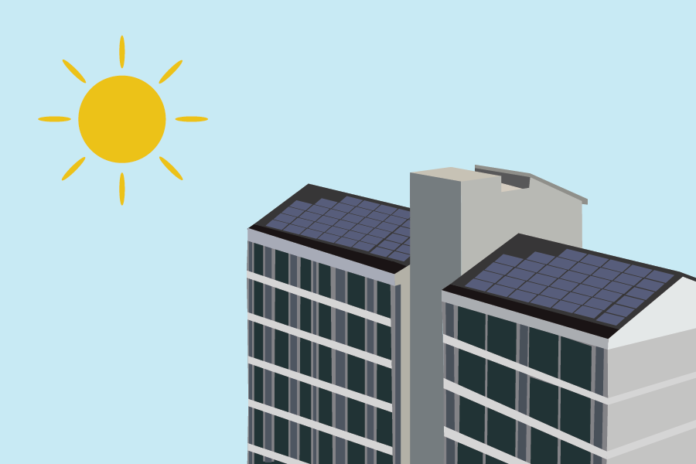City’s goal is to draw more of its energy from renewable sources
The City of Davis will put up a new set of solar panels as part of an effort to help Davis gather more of its energy from a renewable source. UC Davis helped achieve this effort by launching an initiative to have the campus draw 50% of its energy from renewable sources by 2025.
The Environmental Club at UC Davis works to support and protect the environment. The club’s president, Caroline Newell, a fifth-year fish and wildlife conservation major, emphasized the club’s support for solar panels and addressed ways to eliminate waste.
“Solar panels are better than using fossil fuels for energy since the sun does not run out like fossil fuels,” Newell said. “When thinking about switching to solar power, think about reducing. The best thing to reduce your impact is to reduce the things you use like food, water and power — don’t waste, essentially. Also, look to cleaner alternatives for the things [you use].”
Solar panels are not the only solution for renewable energy.
“Solar panels are not a go-to solution,” Newell said. “Solar panels degrade habitat when they are put in, and the land can’t be used for anything else. The soil and water become toxic because of the toxic materials used to make them, which also affects the people that make the solar panels. They also end up in e-waste dumps in third-world countries and become toxic to the people there.”
Linda Katehi, a distinguished electrical engineering professor and former UC Davis chancellor, provided further information about solar panel technology.
“There are two different types of solar panels,” Katehi said. “The foldable type takes sunlight and transforms this light into currents for power. The other type takes the heat of the sun and turns the heat into power. The foldable type needs direct sunlight in order [to] operate and thus does not work in conditions where there is little sunlight. The other type of solar panel can operate in many kinds of environmental conditions since it relies only on heat.”
The solar panels planned to be put up in town are the foldable type. The annual supply of sunlight received in Davis will be able to provide power to the community once the panels are placed.
“Solar panels save households money and are the perfect technology to combat climate change,” Katehi said. “Currently, the main problem the technology faces is the cost of technology, since some households are not able to afford solar panels right now. I would say that there needs to be some more investment from the state and government to make the technology more affordable to those who can’t afford it.”
Many organizations on campus and in the community, such as the Environmental Club and CalPirg, are working to accomplish the goal of making renewable energy more affordable. Information about these organizations and programs can be found online.
Charles Hunt, an electrical engineering professor at UC Davis, discussed the uses of solar energy.
“In the world of solar power, there are two camps: residential use and solar farms,” Hunt said. “In local or residential use, the power from the technology is used for local homes and businesses. This would include places like Aggie Village and some farms in town.”
Solar farms, on the other hand, are “owned and leased by solar companies who take the power and put it into the power grid.” These farms are typical in the southwestern region of the United States and current developments are intended to increase the efficiency of the technology, according to Hunt.
Solar farms also require a specific plot of land to supply renewable energy.
“A 100 kilometer by plot with the current technology could provide all the energy currently needed by the entire United States,” Hunt said. “This could be done by distributing the panels into 400-mile patches and scattering it around the country. Political will is the only thing preventing the use of renewable power.”
Written by: Taylor Martinez— city@theaggie.org



